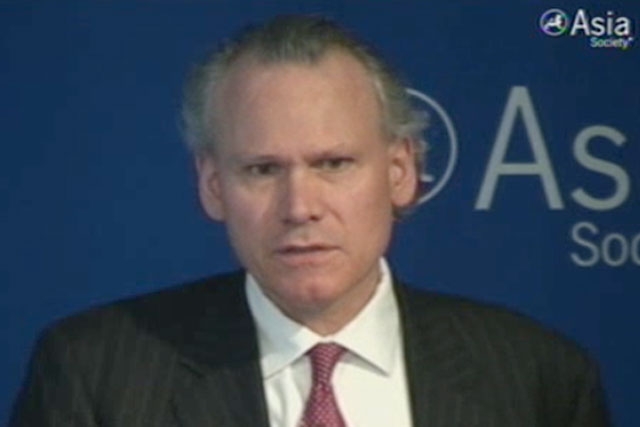Climate Change and Food Security: Irreversible Destiny?

NEW YORK, April 22, 2010 - Earth Day at Asia Society brought together four experts in the fields of climate change and food security to discuss the growing impact of changing temperature on global access to food.
"[T]his is a moving picture," said Andrew Revkin, Senior Fellow at Pace University and blogger for The New York Times. " We're heading from seven to nine billion people... between now and 2050 and it's not simply a matter of numbers of people, appetites increase."
Gerald Nelson, Senior Research Fellow at the International Food Policy Research Institute, presented the impact of unchecked climate change on agriculture, which could lead to a 20 percent increase in malnourished children by 2050. With less food available, already high prices could increase even more. "Think of food security as this giant iceberg moving along, and we're in danger of running into and sinking the human race," said Nelson. He was hopeful that investing in public sector agricultural research, irrigation expansion and rural roads meant these problems were not irreversible.
Maria Blair from the White House Council on Environmental Quality said there are steps that can and need to be taken at federal, local and international levels. She stressed that climate change adaptation needs to be integrated into policy on all levels. "These impacts touch every aspect of our society. They will touch where we live, the jobs we can do... and how we educate our children."
Blair mentioned that US President Barack Obama has voiced his commitment to ending climate change, including reducing greenhouse gases and passing clean energy legislation. However, more investments must be made to ensure better opportunity, assess risk, and build capacity at all levels. This includes supporting other nations with their plans for environmental sustainability. Blair warned if these steps are not taken, the result could be an increasing scarcity of food.
Henk-Jan Brinkman, Senior Advisor for Economic Policy at the World Food Programme, described how the poorest subset of the global population had been hit by both a rise in food prices and the recent financial crisis. In such crises, people retreat from any risk-taking, which includes adopting new technologies, and as a result, incomes may stagnate. This means at least two billion people, particularly women and children, could possibly see a cutback in food with high nutritional value, which is usually more expensive.
All three speakers emphasized the urgency of the looming food crisis and the tangible risks it possess to national security. They said society must support a transformation in how we understand and adapt to the coming changes.
This program was the third in the Asia Society-Oxfam Global Food Crisis Series sponsored in part by the World Food Programme and New York University.
Reported by Sandhya Kumar
